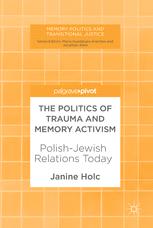

Most ebook files are in PDF format, so you can easily read them using various software such as Foxit Reader or directly on the Google Chrome browser.
Some ebook files are released by publishers in other formats such as .awz, .mobi, .epub, .fb2, etc. You may need to install specific software to read these formats on mobile/PC, such as Calibre.
Please read the tutorial at this link: https://ebookbell.com/faq
We offer FREE conversion to the popular formats you request; however, this may take some time. Therefore, right after payment, please email us, and we will try to provide the service as quickly as possible.
For some exceptional file formats or broken links (if any), please refrain from opening any disputes. Instead, email us first, and we will try to assist within a maximum of 6 hours.
EbookBell Team

4.3
18 reviewsThis book analyses four case studies of Holocaust memory activism in Poland, contextualized within recent debates about Polish-Jewish relations and approached through a theoretical framework informed by critical theory. Three cases are advocacy groups, each located in a different region of Poland—Lublin, Kraków, and Sejny—and each group is presented with attention to the local context and specific dynamics of its vision and strategy. The fourth case study is the state, which has emerged as a powerful memory actor. Using research based on extensive fieldwork, including interviews and direct observation, the author argues that memory activism must grapple with emotional attachments to identity if it is to move beyond a reconciliation paradigm. Drawing on works from semiotics and critical trauma studies, the volume analyzes the assumptions each memory actor makes about three dimensions of Holocaust memory: 1) the relationship of the individual to Polish national identity; 2) the possibility of a reconciled Polish-Jewish history; and 3) the assignment of traumatic suffering to a particular group or event.